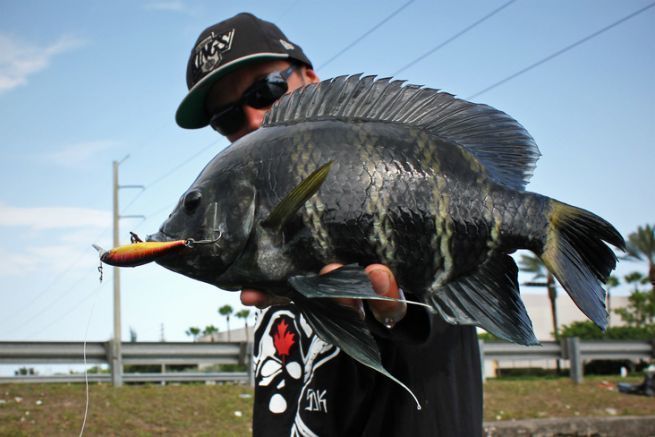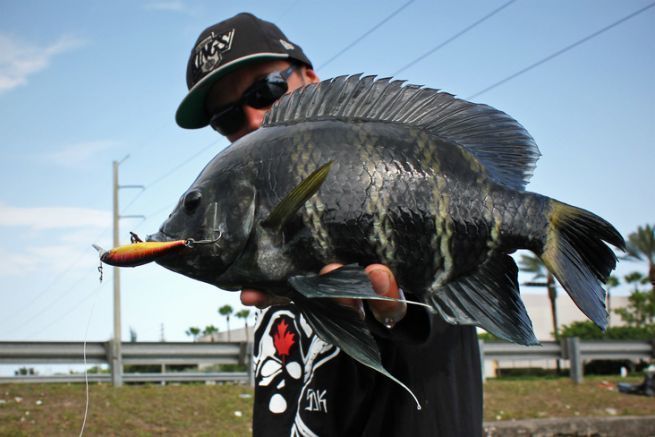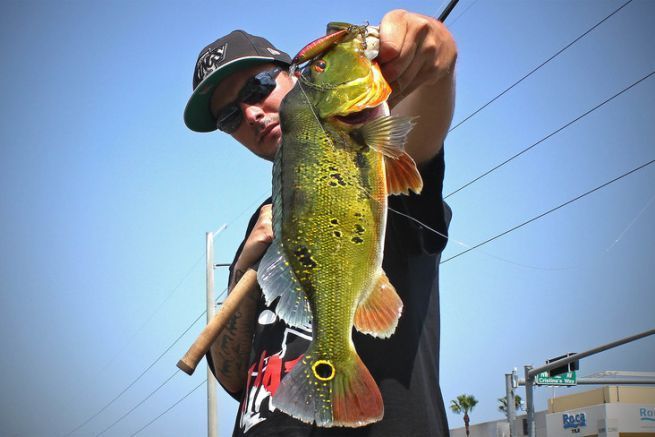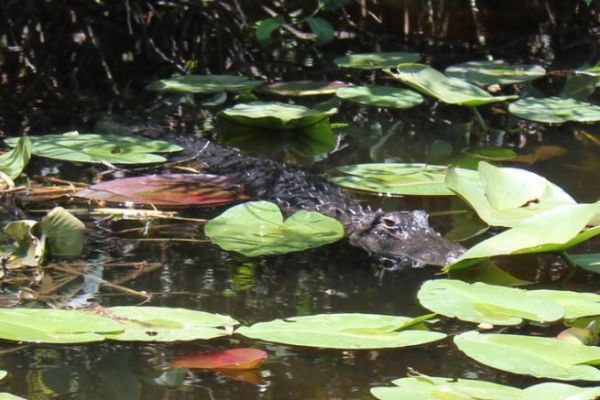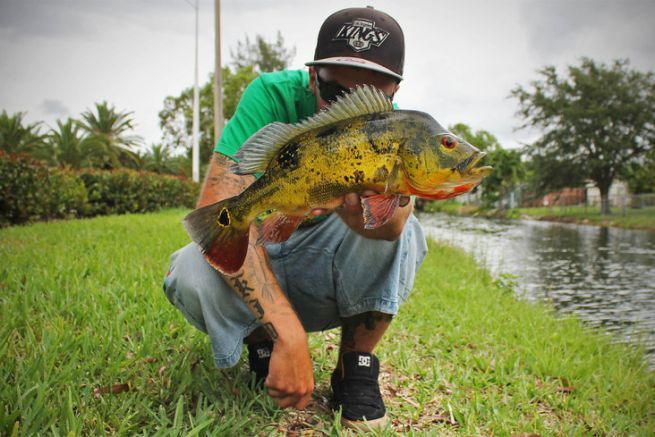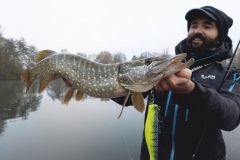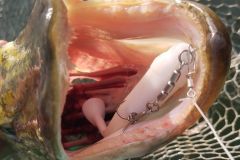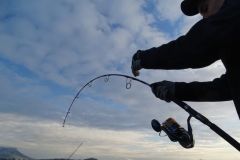The origins
These non-native species are often native to the Amazon basin. They are prized by aquarists and, over time, their owners have released them into the wild. The local climate then enabled them to thrive and colonize many areas. Some of these species have been recorded as far back as the 1960s, and the list continues to grow from year to year.
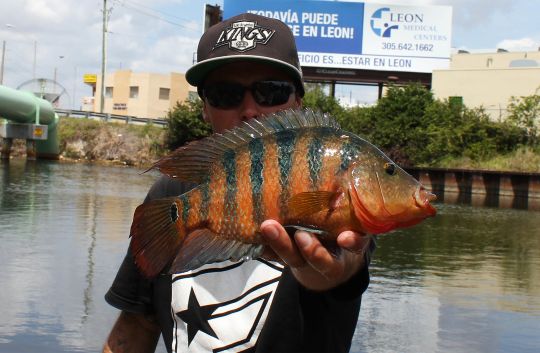
Fishing
I didn't notice any particular behavior from one species to another, perhaps also because I didn't vary my techniques much while traveling with limited equipment. These little fish stay on the edges, close to weedbeds and are reactive to small swimming fish. Slow, insistent animations to stay in the fish's field of vision for a long time are effective. Small 6 or 7cm jerkminnow of the suspending or sinking type give me great satisfaction. Finally, natural or gold/orange colors work very well.
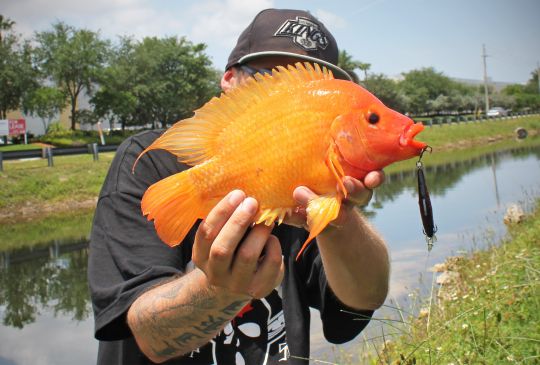
Once you've mastered the technique, the tricky part is finding them, if you want to "catch them all, Pokémon! They're fairly isolated, meaning they're solitary or in pairs, and you have to travel a long way to find them. I've also noticed that some species are quite present in certain canals, whereas in others they won't be, hence the need to vary the places fished.
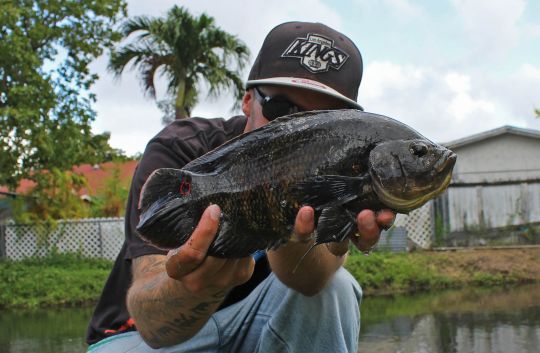
One of these species, which I haven't mentioned but which is certainly the most popular, is peacock bass, which will be the subject of future articles. If you're a fan of light fishing and exceptional small fish, this is definitely a destination I'd recommend for the variety of species it offers.

 /
/ 